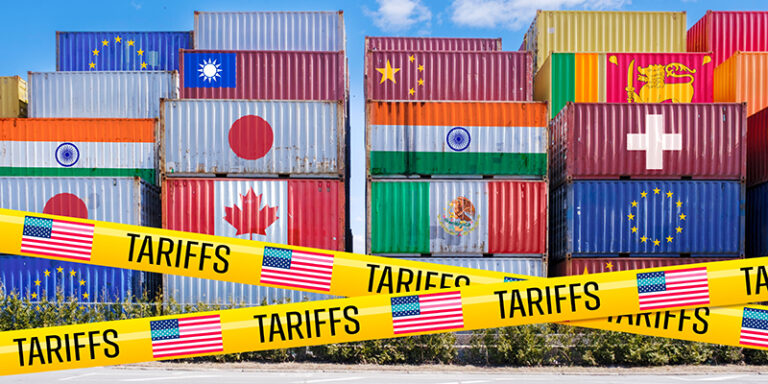Auto Accidents Drop Dramatically with COVID-19 Stay-At-Home Order
- Written By Brett Horoff

Authors: Brett Horoff, ACAS, ASA, MAAA, Director, Consulting Services, Dee Dee Mays, FCAS, MAAA Principal and Chief Actuary, and Denise Farnan, ACAS, MAAA Principal and Consulting Actuary.
To control the spread of COVID-19, many states have issued Stay-At-Home[1] orders for non-essential workers, resulting in a large portion of the workforce working from home and many businesses temporarily closing. Schools have also been forced to close or have moved to online solutions for classes. These changes have brought a significant drop in the number of miles driven by each household and the volume of the traffic on the roads. With fewer miles being driven and a decrease in traffic density, the number of auto accidents has decreased.
According to the Public Policy Institute of California, essential workers are one-third to one-half of the California labor force. The definition of essential workers varies across the state. It includes sectors such as healthcare and public health, emergency services, food and agriculture, energy, water and wastewater treatment, transportation and logistics, communication and technology, government operations, critical manufacturing, hazard materials, financial services, chemicals and defense industries. Outside of these sectors, households are no longer commuting to work. There has also been a significant reduction of personal auto use as this is pretty much limited to driving to the grocery store, pharmacy or to pick up takeout food from restaurants.
The average annual miles driven in the U.S. is 13,476[2] or approximately 260 miles per week. For non-essential workers, this could be down to less than 30 miles per week assuming five trips a week that are six miles round trip. This represents an 88.5% reduction in the weekly miles driven for households with nonessential workers from 260 miles per week to 30 miles per week. For households with essential workers, they will also have a reduction in the miles driven per week; however, the essential worker will still be driving to work. Assuming half the average annual miles driven is commuting to work, then an essential worker is driving 130 miles per week to commute to work plus another 30 miles per week for personal use. With these assumptions, they would be seeing a 38.5% reduction in the miles driven per week from 260 miles per week to 160 miles per week. If half the households have essential workers, the reduction in miles driven is 63.5%, which is just an average of the figures for non-essential and essential workers. This is a very rough estimate with simplified assumptions, but it gives you an idea of the impact that the Stay-At-Home orders are having on miles driven.
The number of auto accidents will be directly related to the number of miles driven, so insurance companies should be seeing a significant drop in the number of auto accidents. With fewer vehicles on the road and a decrease in traffic density, there should be fewer auto accidents. The number of reported auto accidents in Los Angeles is down approximately 25% in March 2020 compared to March 2019 based on adjusted data[3] from the City of Los Angeles. The Safer at Home Order was issued by the City of Los Angeles on March 19, 2020, so the full impact on auto accidents is likely to be more than double.
It is still very early to assess the impact that COVID-19 and the impact that Stay-At-Home orders will have on the number of auto accidents. The definitions of essential workers have been changing over time and the orders could be extended. When the orders are lifted, we may also see a slow return back to the prior driving habits. There are several insurance companies that have already taken action to get the savings from the decrease in auto accidents back to their customers. Allstate has submitted filings this week to state Departments of Insurance for a Shelter-in-Place Payback endorsement that authorizes and facilitates discretionary payments to policyholders. They also had a press release on April 6, 2020 that states their customers will receive more than $600 million as part of this payback. Another insurance company, American Family, announced on the same day that they will return $200 million in premium to their auto customers related to the COVID-19 impact on auto accidents. There also insurance companies with pay-per-mile programs where any savings is automatically passed on to the customer, since the customer pays for each mile driven.
There are a number of filings being made by insurance companies to the state Departments of Insurance to address the impact of COVID-19 on auto accidents. Go Maps has filed to offer personal auto discounts to essential workers and recently unemployed workers in multiple states. Next Insurance has filed to reduce the commercial auto premium for their customers for the month of April in several states. Safe Auto Insurance Company and Elephant Insurance Company have also filed rate reductions related to COVID-19. There are several insurance companies that have filed endorsements lifting the delivery exclusion in personal auto policies during the COVID-19 pandemic in order to provide insurance coverage to the increasing number of people delivering medicine and food.
While several insurance companies are moving fast to pass the savings from a decrease in auto accidents on to their customers, there are consumer groups saying it is not enough. There is much uncertainty right now and the full impact of COVID-19 on auto accident frequency will not be known until the pandemic is over. It is likely that insurance regulators in each state will take a look at the impact of COVID-19 on auto accident frequency and may require the premium savings to be passed on to the consumer.
About Perr&Knight
Perr&Knight is one of the largest providers of State Filing Consulting Services to the insurance industry and is available to help insurance companies with preparing and submitting filings addressing COVID-19’s impact on auto insurance or other lines of business. Our actuaries can help companies estimate the impact of COVID-19 and have assisted companies with preparing and submitting filings related to COVID-19.
Contact us to schedule a consultation.
[1] Also referred to “Shelter in Place” or “Safer at Home” in some municipalities.
[2] Figure is for 2018 and is from the U.S. Department of Transportation Federal Highway Administration.
[3] Data was through March 28, 2020 and was extrapolated to month-end. It was also adjusted for a reporting lag.





